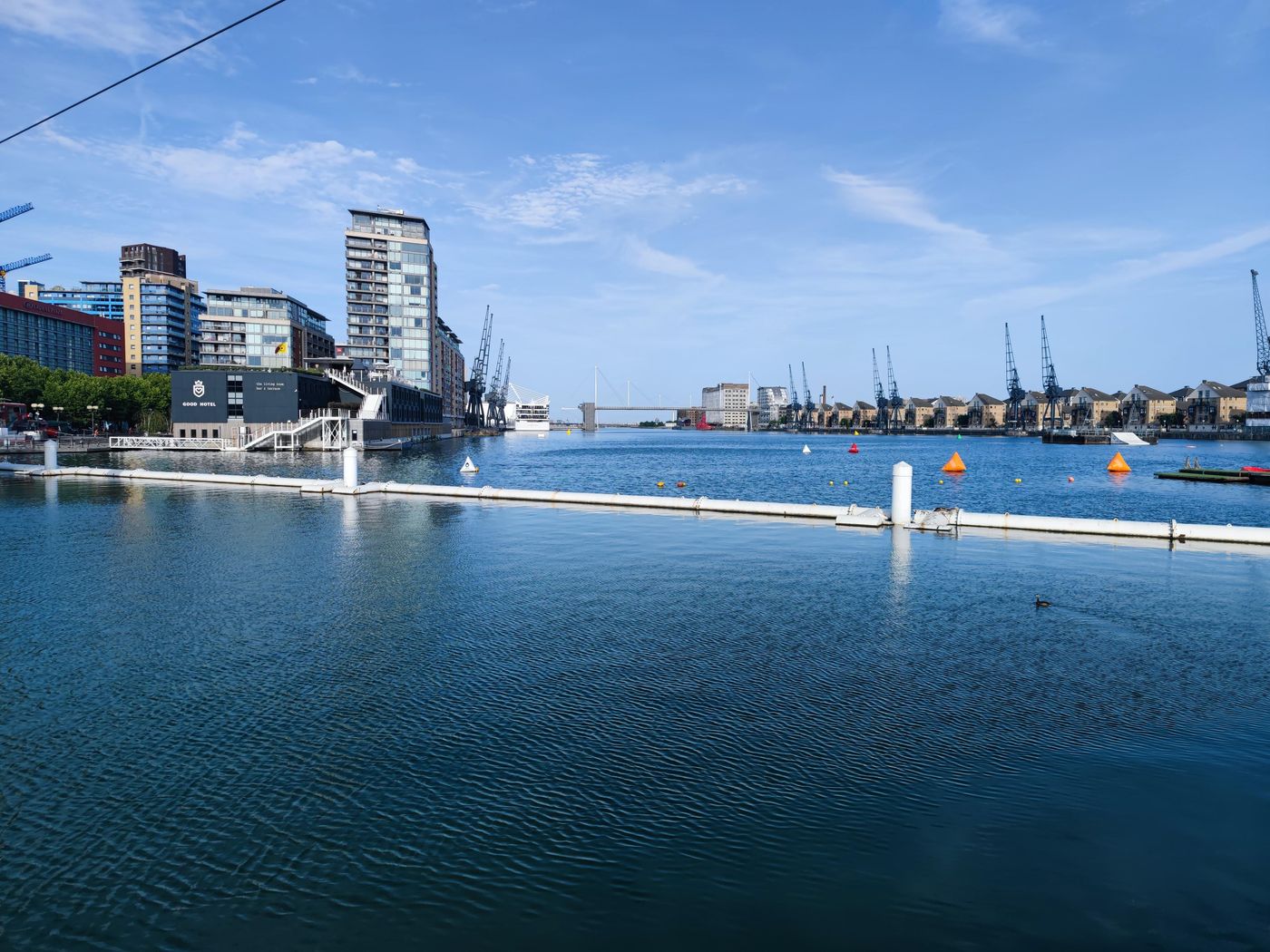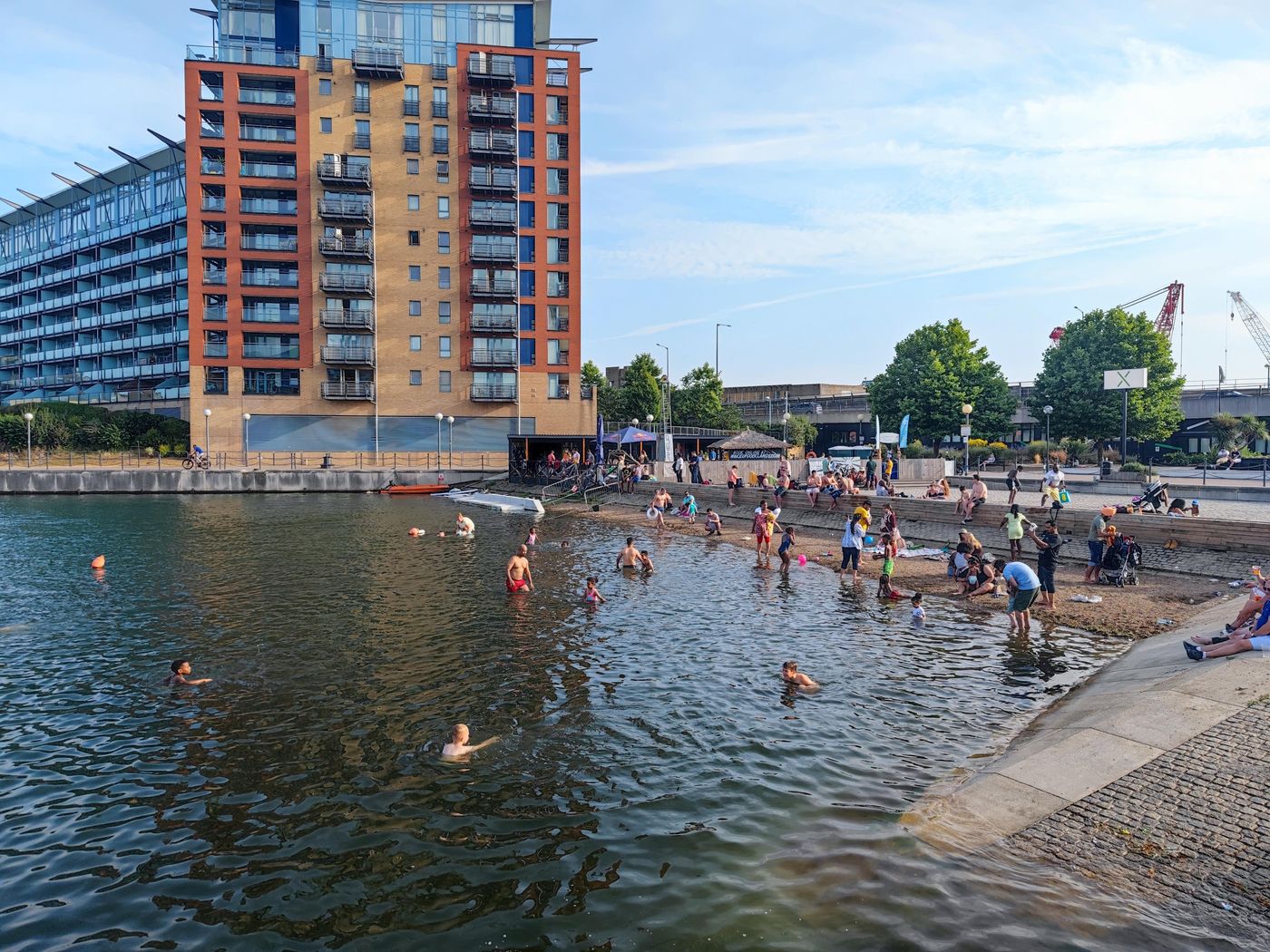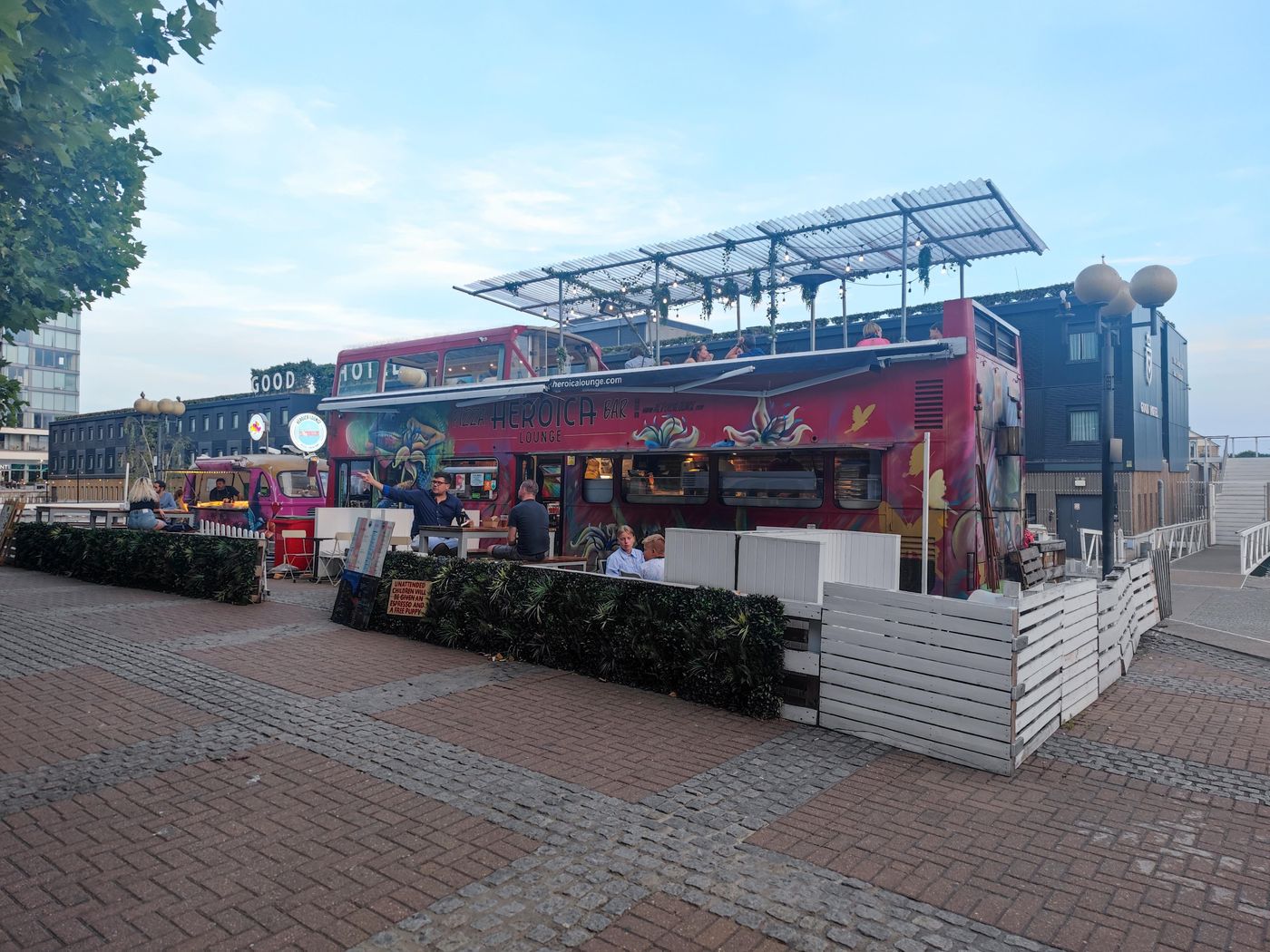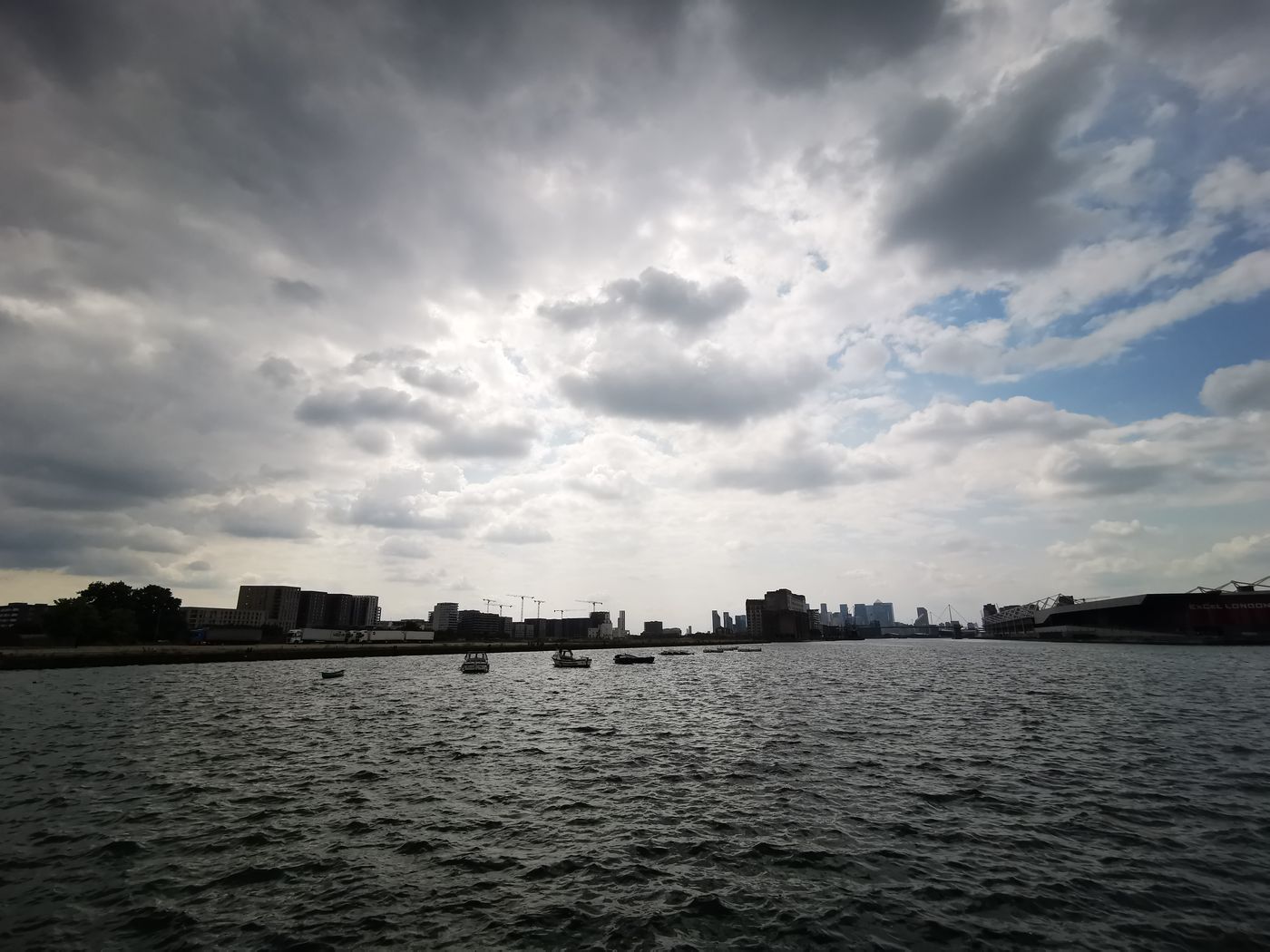Chill in London's heatwave

In mid-July, London experienced high temperatures for several days, and a warning of a heat wave was issued. Various media reported it for several consecutive days, lest residents despise it. Due to the repeated advice from the government and the media, the vest that has been bought for a long time but never put on finally has the opportunity to appear, and is very excited. https://www.bbc.com/news/uk-62177458
Out at dusk. Since I was staying in Docklands, I was looking for food nearby and picked a Thai restaurant by the Thames. Docklands was rebuilt in the 1980s and 1990s, among which Canary Wharf is the most successful and internationally famous, while the surrounding areas are still in the early stages of rebirth. However, the Royal Docks has been transformed, the most striking landmark is the Emirates Air Line Cable Car, and there are riverside restaurants and artificial beaches, but what I appreciate most is the wide walking space along the river. Although the air was still hot, the wind by the river was not small, so it was very comfortable to walk.

After dinner, the sun gradually disappeared, and the heat in the air faded, but the wind did not decrease. Since the humidity in London is not as high as that in Hong Kong, I felt a little cold in a vest; I walked by the river for an hour and returned to the hotel. I think I might have caught a cold.

Europeans told me that even in summer, the temperature can drop by 10 degrees in one day. I don't believe it. This trip is the longest summer I have stayed in Europe, and I believe it. In June, London is warm in the daytime. Wearing a short-sleeved T may still feel a little hot. When I see locals wearing long-sleeved, or even woolen clothes and coats, I can't help but be confused. But one night, I regretted not bringing my coats on the street. In July, after two consecutive days of heat wave warning, the sky was full of thick clouds the next day, the sun was gone, but the wind was still blowing, so you needed to wear a jacket with sleeves, preferably a jacket; sometimes it was extremely hot, sometimes cool , I caught a cold. I guess because the humidity in Europe is much lower than in Hong Kong, once there is no sunlight, the body temperature can vary greatly.

Looking at the media in various places, they are full of reports on how the UK and other European countries have been affected by the heat wave this summer. Dozens of people have died. It's hot to death at night, but the reality is not, even on a record-breaking hot day, there are still cool moments, I just want everyone to know that. However, I am not a party to the "warming conspiracy theory". I believe that climate warming is exaggerated and untrue. A few years ago in Kenya, and recently in Europe, I have indeed seen some areas that are extremely dry, with no rain in the rainy months in the past. , or the rainfall is greatly reduced, and the plants dry up to withered yellow.
In mid-July, the UK was hot for many days, with the highest temperature reaching 40 degrees in some parts of England. Some prospective employees of some companies worked from home. The BBC made headlines about heat waves and climate change almost from morning to night, which was ridiculed by some netizens, and even some Email the BBC weather editor, scolding them for bluffing, and then the BBC lists information to prove that its report is factual: https://www.bbc.com/news/62212604
I have worked in traditional media for a long time, I am familiar with its operation, understand the considerations of prioritizing news, and I also know that internationally renowned media also make mistakes. The BBC has been criticized from time to time in the UK, such as mainly white middle-class views (similar to the New York Times), male editors and editors are paid far more than women, etc., but to me, the BBC is still a credible medium. And, with or without climate change, some things should be done, such as: don't waste water.
Like my work? Don't forget to support and clap, let me know that you are with me on the road of creation. Keep this enthusiasm together!

- Author
- More